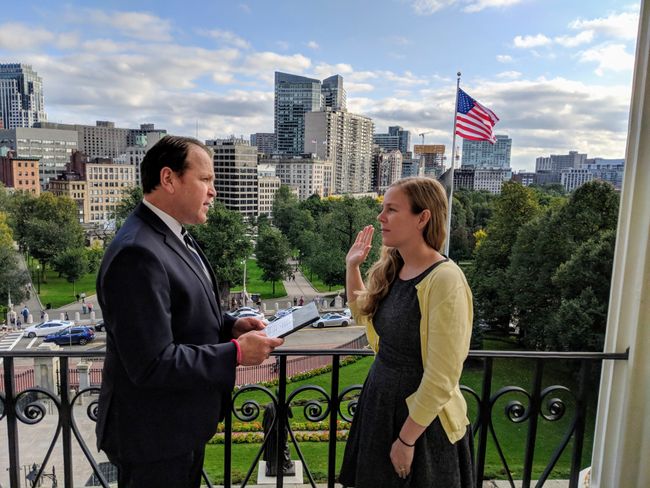BUSSW Lecturer Brandy Henry Appointed to Massachusetts Restrictive Housing Oversight Committee

Brandy Henry, LICSW, MSW, a lecturer at Boston University School of Social Work, was appointed by Governor Charlie Baker to the Restrictive Housing Oversight Committee. The newly-formed committee will gather information on the use of restrictive housing in correctional institutions to determine its impact on prisoners, rates of violence recidivism, incarceration costs, and self-harm within correctional institutions. Restrictive housing, or solitary confinement, is a housing placement where a prisoner is confined to a cell for more than 22 hours per day.
The new committee was created from a sweeping Massachusetts criminal justice legislation which recently passed. The committee will oversee the use of restrictive housing in Massachusetts state prisons and county jails.
The Massachusetts Chapter of the National Association of Social Workers (NASW-MA) was designated a seat by the legislation that called for the formation of the committee — a significant acknowledgment of the role of social work practice and perspective in developing policy and reformations, notably within the criminal justice system.
Henry was selected by NASW-MA to fill the organization’s seat. A co-chair of the NASW Criminal Justice Committee, she is an experienced clinician and researcher who focuses on the treatment of those in the criminal justice system who have severe mental illnesses and substance use disorders.
“I’m honored to have been selected by NASW-MA to represent the social worker’s perspective on restrictive housing and its impact on prisoners,” Henry said. “It’s an exciting opportunity to raise the visibility of social work’s role in improving the criminal system.”
While members of the committee are still being sworn in and have yet to meet, they will quickly get to business. Their responsibilities will include submitting annual recommendations to the State House and Senate Chairs of the Joint Committee on Public Safety and Homeland Security, recommending ways to minimize the use of restrictive housing and improve outcomes for prisoners and facility safety, as well as conducting a cost analysis and an evaluation of the process in Massachusetts.